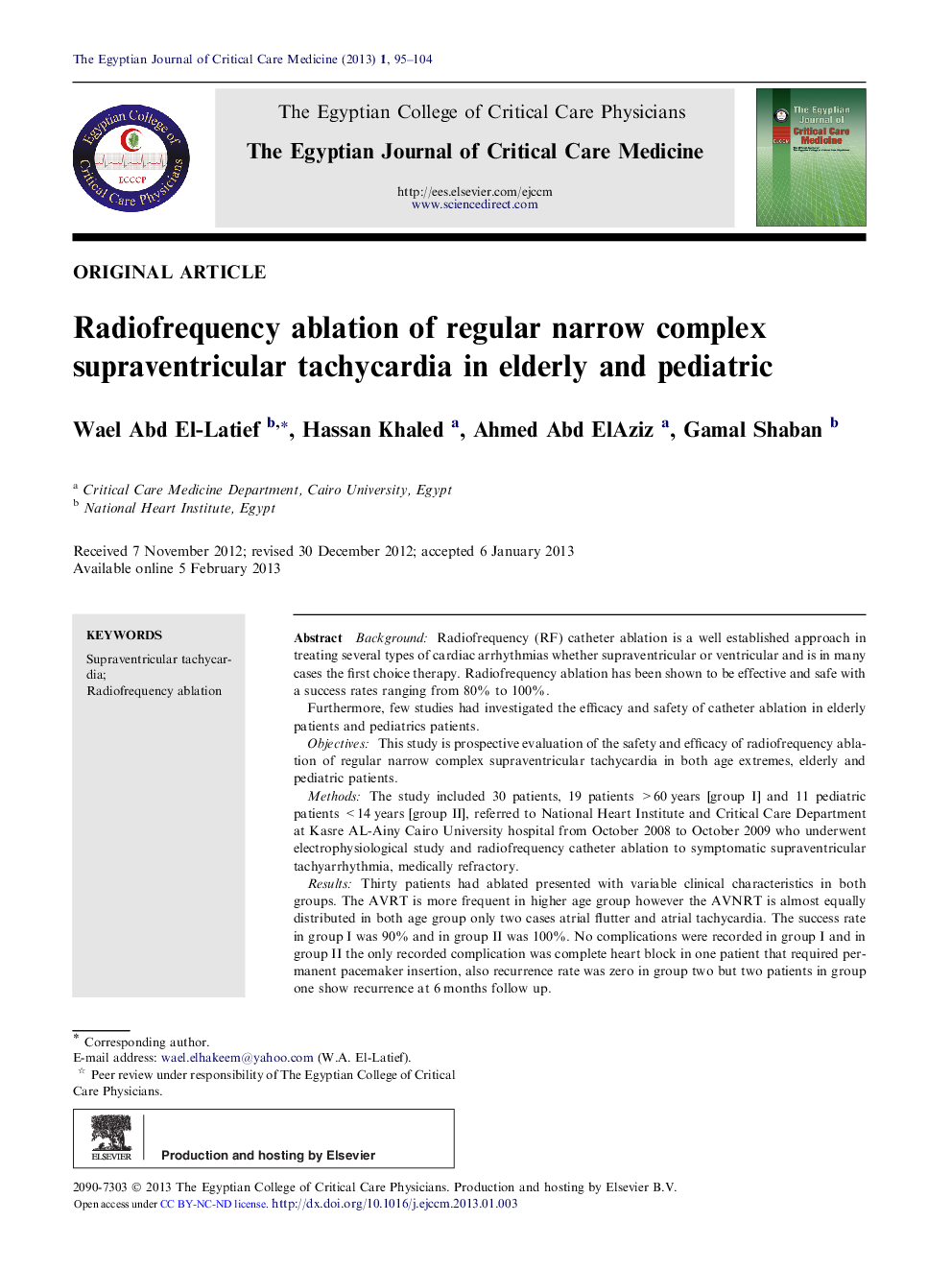| Article ID | Journal | Published Year | Pages | File Type |
|---|---|---|---|---|
| 2910918 | The Egyptian Journal of Critical Care Medicine | 2013 | 10 Pages |
BackgroundRadiofrequency (RF) catheter ablation is a well established approach in treating several types of cardiac arrhythmias whether supraventricular or ventricular and is in many cases the first choice therapy. Radiofrequency ablation has been shown to be effective and safe with a success rates ranging from 80% to 100%.Furthermore, few studies had investigated the efficacy and safety of catheter ablation in elderly patients and pediatrics patients.ObjectivesThis study is prospective evaluation of the safety and efficacy of radiofrequency ablation of regular narrow complex supraventricular tachycardia in both age extremes, elderly and pediatric patients.MethodsThe study included 30 patients, 19 patients >60 years [group I] and 11 pediatric patients <14 years [group II], referred to National Heart Institute and Critical Care Department at Kasre AL-Ainy Cairo University hospital from October 2008 to October 2009 who underwent electrophysiological study and radiofrequency catheter ablation to symptomatic supraventricular tachyarrhythmia, medically refractory.ResultsThirty patients had ablated presented with variable clinical characteristics in both groups. The AVRT is more frequent in higher age group however the AVNRT is almost equally distributed in both age group only two cases atrial flutter and atrial tachycardia. The success rate in group I was 90% and in group II was 100%. No complications were recorded in group I and in group II the only recorded complication was complete heart block in one patient that required permanent pacemaker insertion, also recurrence rate was zero in group two but two patients in group one show recurrence at 6 months follow up.ConclusionWe have concluded that catheter ablation of supraventricular tachycardia is a very good option for management of patients with drug resistant SVT in both young and old patients. The success rate was very high almost with no complications and very low recurrence rate in the elderly and no recurrence in the young during the 6 months follow-up.
